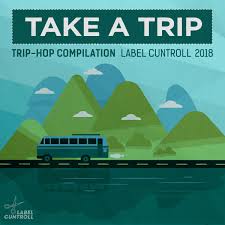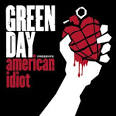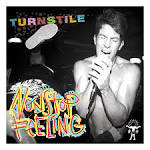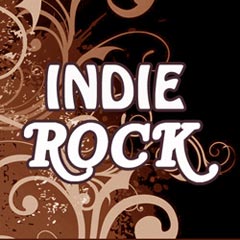2023-03-20
Concepts for alternative music. How our relationship with music changes: a leap into the future with Mico Agirò
Let’s start from a consideration: remaining only in recent years, we have passed from a real revolution that replaced the physical medium, think of the CD, with digital support, such as listening offered by streaming platforms.
What motivates and involves this change? The evolution of technology allows us to listen to music differently and the aspects that are winning in the change are basically two: the convenience of being able to listen to what we want at any time and the economic aspect. Digital listening opens up endless possibilities to listen to everything at no cost, or at very low costs. This also changes the way we approach music: if the purchase of a CD presupposed a more conscious choice and the opportunity to know a certain number of songs by the same artist, the digital approach allows for more choice, listen to different artists and styles, although perhaps more distracted and less thorough.
If this is true for us listeners, for those who have made music thei work, singers and musicians, it changes in a radical chenges the way to spread their work and the way to get an economic feedback. We talk about it with Mico Argirò, eclectic artist and songwriter who in this field has gone beyond what we all could have imagined.
Q- Mico, how do you see the transition from CD to digital music? If I had to make an overall assessment, would it be more positive or negative? And again, give me your assessment of this evolution both from the point of view of a music lover (who listens to music) and an artist (who lives on music).
A- When I was younger to listen to music you bought the CD, but there were still the tapes, with all the possibilities to make your own compilations and listen to them on the walkman. They were the last years of the cassettes, the vinyls were out of fashion and they practically didn’t come out anymore.
The music had something romantic that today is nostalgia and you can not rely on nostalgia. The world goes on, changes, and there is only to accept and understand it. Surfing on the sea of modernity.
Today the vinyl records are back, as much as I think they are a hipster fashion and that’s it, the music is all digital and with a one thousandth of a second search you have any song you want on your phone.
As a listener I think it’s a nice thing, a great convenience. From comfort then comes laziness, disinterest, sloppiness, the soft times that forge soft men.
Paradoxical because you have the opportunity to heal every curiosity, but it is the paradox (so I call it) of Google Street View: you can search every place in the world and you look for your home, your street, your window.
As an artist and producer I believe that the blow is great to music, to the economy of music and also to art. We live in a world where making an album no longer makes economic sense, it is also inconvenient most of the time, difficult to get back with the expenses.
The stores (Spotify, Deezer, etc.) pay very little and are uninterested to artists, they want them to produce every three months a single new one, put it there, they do not gain anything but vanity and that’s all.
Worse than animals in an intensive farm and the absurd thing is that then everyone is standardized. It is the capitalism of music, which becomes produced without body and loses all art. Can anything be done about this? I think so, I think I did with Irriverentə, although it is difficult to understand and it is a battle against windmills. I can see Don Quixote.
Q- I mentioned two aspects related to the evolution of the media to listen to music: the convenience of listening and the economic aspect. To this we add the propensity to listen perhaps less attentive, We must say that the artistic value of music is penalized by these changes?
A- In this perspective of musical consumerism, art is necessarily penalized, diminished, reduced almost to something to be ashamed of. Like love today, in the era of Tinder, searching for it seems almost a utopia, it almost makes you blush to say you still want it (especially in a city like Milan, which I think is symbolic).
To appreciate the beauty of something, be it a feeling or a work of art, you need time, desire, attention, give yourself the opportunity to tune in to the work.
At present conditions can only thrive shit music, without emotions, without feelings, made by 50 wise men, filling the 15 seconds of a story or the time of a TikTok.
Finding music with the soul is an arduous task entrusted to a few enthusiasts. Good, bad? I don’t know.
Q- We come to your album Irreverentə, in this case the support you have chosen is at the same time revolutionary and provocative, it seems to become a means to convey a message, an extra element that is added to complete what is the real content of the album. You wanna talk about it?
A- Irriverentə - Songs from the 20’s is printed on condom, there is neither a CD nor a vinyl, it is the first of this genre. It’s a bold choice and it definitely made the news for its irreverence, but there’s a whole world behind it that I’m happy to tell.
The idea came to me when I found out I couldn’t listen to a CD they had given me, I realized I didn’t have a player either in the car or in the computer and I didn’t have a stereo. I thought, therefore, that those who buy the CD today do it to have an object of that artist or to support the project. So I thought of an object that was really unique, consistent with the songs and that gave me a chance more than an old school support: from the packaging of the condom you access a private online area, all for me and for those who bought the album, in which the contents are dynamic and, beyond the songs, there are special contents that vary, are enriched, appear only for short periods or remain long... It’s a new way of understanding music, something halfway between analog and digital.
It has made so much news, it has bounced a bit everywhere, but I think that the whole idea is still to be understood well.
It’s an album, this one, that I really care about because it photographs my thoughts in these absurd '20s, it does it with irreverence, irony, but also a great desire for beauty.
Q- We take a leap in time, a journey into the science fiction of music. Thinking about the evolution of the last 50 years, from cassette tapes to today, in terms of both technology and approach to content, how do you imagine our relationship with music will be in another 50 years?
A- It’s really hard to say, on the one hand you can imagine a sci-fi evolution and on the other you can think that this race stops and stagnates like this for a while. Who can say that?
I think that we will certainly continue with this virtuality, but there will never be a lack of a link with the physical world, whether it is things like my condoms or whatever new support.
More than imagining I hope, I strongly hope, in a rediscovery of the essence, the content, the soul. Reanimation, in the various possible facets of the sense of the word, for music, for art, for our lives and our feelings.
We need to go further, strongly Besides, and art can be a door to it, but only if it is Art really.
What motivates and involves this change? The evolution of technology allows us to listen to music differently and the aspects that are winning in the change are basically two: the convenience of being able to listen to what we want at any time and the economic aspect. Digital listening opens up endless possibilities to listen to everything at no cost, or at very low costs. This also changes the way we approach music: if the purchase of a CD presupposed a more conscious choice and the opportunity to know a certain number of songs by the same artist, the digital approach allows for more choice, listen to different artists and styles, although perhaps more distracted and less thorough.
If this is true for us listeners, for those who have made music thei work, singers and musicians, it changes in a radical chenges the way to spread their work and the way to get an economic feedback. We talk about it with Mico Argirò, eclectic artist and songwriter who in this field has gone beyond what we all could have imagined.
Q- Mico, how do you see the transition from CD to digital music? If I had to make an overall assessment, would it be more positive or negative? And again, give me your assessment of this evolution both from the point of view of a music lover (who listens to music) and an artist (who lives on music).
A- When I was younger to listen to music you bought the CD, but there were still the tapes, with all the possibilities to make your own compilations and listen to them on the walkman. They were the last years of the cassettes, the vinyls were out of fashion and they practically didn’t come out anymore.
The music had something romantic that today is nostalgia and you can not rely on nostalgia. The world goes on, changes, and there is only to accept and understand it. Surfing on the sea of modernity.
Today the vinyl records are back, as much as I think they are a hipster fashion and that’s it, the music is all digital and with a one thousandth of a second search you have any song you want on your phone.
As a listener I think it’s a nice thing, a great convenience. From comfort then comes laziness, disinterest, sloppiness, the soft times that forge soft men.
Paradoxical because you have the opportunity to heal every curiosity, but it is the paradox (so I call it) of Google Street View: you can search every place in the world and you look for your home, your street, your window.
As an artist and producer I believe that the blow is great to music, to the economy of music and also to art. We live in a world where making an album no longer makes economic sense, it is also inconvenient most of the time, difficult to get back with the expenses.
The stores (Spotify, Deezer, etc.) pay very little and are uninterested to artists, they want them to produce every three months a single new one, put it there, they do not gain anything but vanity and that’s all.
Worse than animals in an intensive farm and the absurd thing is that then everyone is standardized. It is the capitalism of music, which becomes produced without body and loses all art. Can anything be done about this? I think so, I think I did with Irriverentə, although it is difficult to understand and it is a battle against windmills. I can see Don Quixote.
Q- I mentioned two aspects related to the evolution of the media to listen to music: the convenience of listening and the economic aspect. To this we add the propensity to listen perhaps less attentive, We must say that the artistic value of music is penalized by these changes?
A- In this perspective of musical consumerism, art is necessarily penalized, diminished, reduced almost to something to be ashamed of. Like love today, in the era of Tinder, searching for it seems almost a utopia, it almost makes you blush to say you still want it (especially in a city like Milan, which I think is symbolic).
To appreciate the beauty of something, be it a feeling or a work of art, you need time, desire, attention, give yourself the opportunity to tune in to the work.
At present conditions can only thrive shit music, without emotions, without feelings, made by 50 wise men, filling the 15 seconds of a story or the time of a TikTok.
Finding music with the soul is an arduous task entrusted to a few enthusiasts. Good, bad? I don’t know.
Q- We come to your album Irreverentə, in this case the support you have chosen is at the same time revolutionary and provocative, it seems to become a means to convey a message, an extra element that is added to complete what is the real content of the album. You wanna talk about it?
A- Irriverentə - Songs from the 20’s is printed on condom, there is neither a CD nor a vinyl, it is the first of this genre. It’s a bold choice and it definitely made the news for its irreverence, but there’s a whole world behind it that I’m happy to tell.
The idea came to me when I found out I couldn’t listen to a CD they had given me, I realized I didn’t have a player either in the car or in the computer and I didn’t have a stereo. I thought, therefore, that those who buy the CD today do it to have an object of that artist or to support the project. So I thought of an object that was really unique, consistent with the songs and that gave me a chance more than an old school support: from the packaging of the condom you access a private online area, all for me and for those who bought the album, in which the contents are dynamic and, beyond the songs, there are special contents that vary, are enriched, appear only for short periods or remain long... It’s a new way of understanding music, something halfway between analog and digital.
It has made so much news, it has bounced a bit everywhere, but I think that the whole idea is still to be understood well.
It’s an album, this one, that I really care about because it photographs my thoughts in these absurd '20s, it does it with irreverence, irony, but also a great desire for beauty.
Q- We take a leap in time, a journey into the science fiction of music. Thinking about the evolution of the last 50 years, from cassette tapes to today, in terms of both technology and approach to content, how do you imagine our relationship with music will be in another 50 years?
A- It’s really hard to say, on the one hand you can imagine a sci-fi evolution and on the other you can think that this race stops and stagnates like this for a while. Who can say that?
I think that we will certainly continue with this virtuality, but there will never be a lack of a link with the physical world, whether it is things like my condoms or whatever new support.
More than imagining I hope, I strongly hope, in a rediscovery of the essence, the content, the soul. Reanimation, in the various possible facets of the sense of the word, for music, for art, for our lives and our feelings.
We need to go further, strongly Besides, and art can be a door to it, but only if it is Art really.
Tag: alternative music, spotify, deezer. evolution
2022-11-01
LMFAO's Musical Biography: From Party Rockin' to Super Stardom
LMFAO was an American electro-pop duo that dominated the music world in the early 2010s. With their catchy beats, infectious energy, and witty lyrics, they became one of the most iconic musical acts of the decade...read more
2022-11-01
The Musical Journey of Ghostnotes: A Look into the Life and Work of a Legendary Artist
Music is a universal language that connects people from different walks of life. It has the power to evoke emotions, tell stories, and even inspire revolutions...read more
2022-11-01
The Unforgettable Musical Journey of Green Day
Green Day, the legendary punk rock band that originated from California, has been a household name for over three decades. The band has produced heart-pumping music that speaks to the joy, struggles and frustrations of everyday life...read more
2022-11-01
Esquivel: The Musical Biography of a Legend
Music is an art form that inspires emotions and evokes memories. It allows us to escape reality and enter a world of sound and rhythm...read more
2022-11-01
Turnstile: A Musical Biography
If you’re into music, then you’ve definitely heard of Turnstile. This band has been taking the punk and hardcore scene by storm since 2010, and their unique style has caught the attention of fans across the globe...read more
SUGGESTED PLAYLISTS








